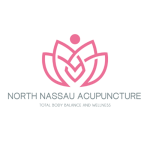Anxiety is a common yet debilitating condition that affects millions of people worldwide. While conventional treatments like therapy and medication can be effective, many individuals seek natural and holistic approaches to manage their symptoms. One such alternative that has gained widespread recognition is acupuncture. If you're looking for a natural and effective way to ease stress and anxiety, acupuncture for your anxiety may be the solution you need.
Understanding Anxiety and Its Impact on Your Well-Being
Anxiety is more than just feeling nervous before a big event; it can manifest in physical, emotional, and cognitive symptoms. People with anxiety often experience excessive worry, restlessness, difficulty concentrating, and physical symptoms like headaches, muscle tension, and fatigue. When left unmanaged, anxiety can interfere with daily life, relationships, and overall health.
While there are many treatment options available, acupuncture on Long Island offers a unique, drug-free approach that works with the body's natural healing mechanisms. By restoring balance to the body’s energy flow, acupuncture can help alleviate anxiety symptoms and promote a sense of calm and well-being.
How Acupuncture Works for Anxiety
Acupuncture is a key component of Traditional Chinese Medicine (TCM) that involves inserting fine needles into specific points on the body. According to TCM principles, anxiety, and other health conditions occur when there is an imbalance in the body's energy flow, known as Qi (pronounced “chee”). Acupuncture aims to restore this balance by stimulating specific meridian points, promoting relaxation, and enhancing the body’s ability to heal itself.
From a modern scientific perspective, acupuncture is believed to influence the nervous system, triggering the release of neurotransmitters such as serotonin and endorphins. These chemicals help regulate mood and reduce stress, making acupuncture an effective treatment for anxiety. Additionally, acupuncture promotes circulation, reduces inflammation, and supports the body’s natural ability to manage stress.
The Benefits of Acupuncture for Your Anxiety
Improves Sleep Quality Anxiety often leads to sleep disturbances such as insomnia or restless nights. Acupuncture can help regulate sleep patterns by balancing the body's energy and reducing mental hyperactivity, allowing for a more restful night’s sleep.
Enhances Mood and Emotional Stability By stimulating the production of neurotransmitters like serotonin and dopamine, acupuncture helps improve mood and emotional well-being. Many people find that regular acupuncture treatments lead to a greater sense of inner peace and emotional balance.
Reduces Physical Symptoms of Anxiety Anxiety isn’t just a mental condition—it also affects the body. Acupuncture can alleviate common physical symptoms such as muscle tension, headaches, digestive issues, and fatigue, providing holistic relief.
Supports Overall Health and Well-Being Acupuncture doesn’t just target anxiety; it supports overall health by boosting immunity, improving digestion, and increasing energy levels. This holistic approach helps create a sense of balance in both mind and body.
What to Expect During an Acupuncture Session for Anxiety
If you're new to acupuncture, you may be wondering what to expect during your first session. Typically, an acupuncture session begins with a consultation where your practitioner will discuss your symptoms, medical history, and overall health goals. Based on this information, they will create a personalized treatment plan tailored to your needs.
During the treatment, you will lie comfortably on a treatment table while the practitioner inserts thin, sterile needles into specific points on your body. These points may be located on the head, ears, hands, feet, or other areas depending on your symptoms. The needles are left in place for about 20-30 minutes while you relax. Many people find the experience deeply calming and may even fall asleep during the session.
After the treatment, you may feel an immediate sense of relaxation or notice improvements in your anxiety symptoms over time. Regular sessions are often recommended to achieve the best results.
Tips for Maximizing the Benefits of Acupuncture for Your Anxiety
To get the most out of your acupuncture sessions, consider the following tips:
- Be consistent: Regular sessions yield the best results. Your practitioner may recommend weekly treatments at first, gradually spacing them out as your symptoms improve.
- Practice self-care: Incorporate other stress-reducing activities such as meditation, yoga, and deep breathing exercises to enhance the effects of acupuncture.
- Maintain a healthy lifestyle: Eating a balanced diet, staying hydrated, and getting enough rest can support your body's healing process.
- Communicate with your acupuncturist: Share any changes in your symptoms or concerns with your practitioner so they can adjust your treatment plan accordingly.
Is Acupuncture Right for You?
Acupuncture is a safe and effective option for most people, but it’s essential to consult with a licensed acupuncturist to determine if it’s the right fit for you. If you’re currently taking medication or undergoing other treatments for anxiety, acupuncture can complement your existing care plan rather than replace it. Many people find that a combination of acupuncture, therapy, and lifestyle changes provides the best results.
Final Thoughts
If you’re struggling with anxiety and looking for a natural, holistic solution, acupuncture for your anxiety could be the answer. This time-tested therapy has been helping people achieve a sense of calm, balance, and overall well-being for centuries. By addressing both the mind and body, acupuncture offers a comprehensive approach to anxiety relief that goes beyond symptom management.
Are you ready to take the next step toward better mental health? Consider giving acupuncture a try and experience the benefits for yourself. Schedule a consultation with a qualified acupuncturist today and start your journey toward a more peaceful and balanced life.






Comments